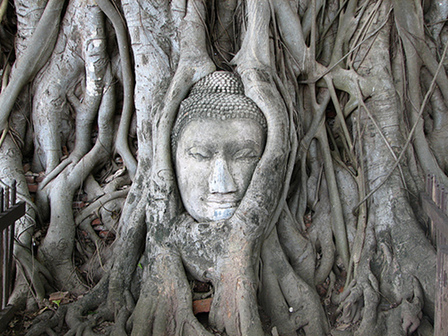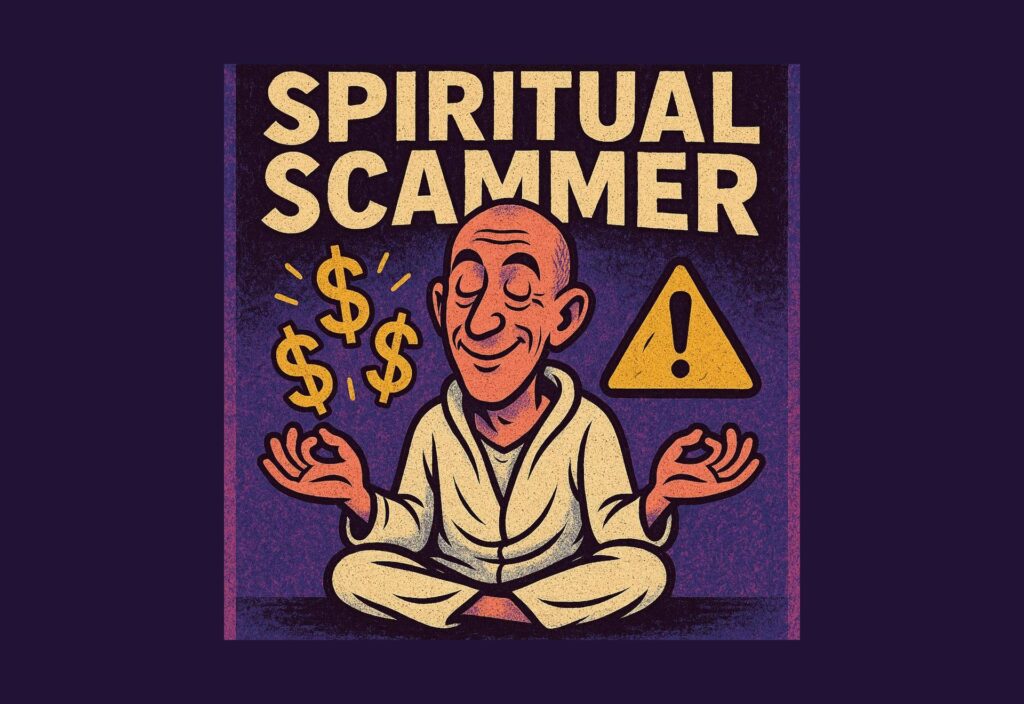I've
enjoyed being a contributor to Reality
Sandwich, and meeting many in the RS and Evolver communities. But, as my readers have noticed, my
posts often look like the Sesame Street
game of "Which One Doesn't Belong." The reason is that, despite my own not-inconsiderable
experience with esotericism, Kabbalah, and shamanic medicines, I tend to think
that the simple stuff is more important both for personal transformation and
for global evolution than the fancy stuff is.
In
fifteen years of practice, all of my most powerful insights have been
banal. Despite having spent two
decades studying the baroque mysteries of the Kabbalah, the intricacies of
postmodern philosophy, and the endless inversions of gender and queer theory,
and despite four (count 'em) graduate degrees, I find that the insights which
affect me the most, and last the longest, are maxims you might find on any
hybrid-SUV's bumper stickers. Love
and Let Go. You are Okay. Trust the Part that Loves. It's embarrassing, really; having
written over two hundred essays and articles on the spiritual path, I'm at a
loss to say anything original about what really matters to me. It all comes out sounding trite. Pale.
This
is especially true of the latest stage in my spiritual journey, which has
involved long silent retreats (two months, three months) in the Theravadan
Buddhist tradition. I have, on these retreats, had
wonderful profound/mystical/life-altering experiences, and sublime mystical states
I've written about elsewhere. But
these were not really the point, since these pass, and I've had plenty of them
already. Nor was the point to get
some new, secret information.
Rather, what's stuck are the fundamentals.
Here's
how I've put it to friends. For
five billion years, life on Earth has evolved ever more complicated means of
ensuring survival. Two of these
fundamental methods are the basic idea of the self, and the basic drive to
satisfy the self's desires. If we
didn't have a sense of the ego, of Me, we'd surely have been eaten by predators
aeons ago. Who knows, some of our
ancestors may well have been — and their genetic material has long since been
lost to history. And if we didn't
have this basic drive to satisfy our hungers and our desires, we wouldn't eat,
wouldn't reproduce, wouldn't do much of anything, really. The mental constructions of ego and
desire have long been essential, then, to our very existence.
And
yet, as the Buddha realized 2,500 years ago (and many other people have
realized since), these basic constructions cause a lot of pain. The ego feels alone. Desires are never satisfied — we just
want more. And life just doesn't
cooperate; it's just not possible to always keep the pleasant and always avoid
the unpleasant. Really, all of us
want just a few basic things: success, love, power, meaning, purpose,
pleasure. And, of course, we
all don't want sickness, death, loss, pain, loneliness, and grief. This handful of basic desires is
universal, natural — and the cause of suffering.
See
the conundrum? The needs most
fundamental to our biological makeup are also the ones which tend to cause the
most suffering. Is there another
way?
The
Buddha and I happen to agree that there is — but we also agree that more
esotericism, Kabbalistic coincidences, Atlanteans, Lumerians, crop circles,
entheogenic visions, theorizing, cognizing, faiths, anti-faiths, whatnots, and
whoozits aren't really it. They
may or may not be true, and many of them certainly are interesting. But in my
view, interesting is not going to change the world. Transformation of the ego, on the fundamental level I've
been describing, will. And that
doesn't depend on any gematria, Bible Code, Mayan calendar, or energy vortex.
The
fundamental axis of the teaching is very, very simple: to understand,
intuitively and deeply, that what Buddhists call "conditioned
formations" — i.e., stuff, ideas, people, emotions, and everything else
— are incapable of providing lasting, deep happiness. Formations change all the time. The joys they bring — though often
wonderful, profound, and amazing — are short-lived. Even when we get exactly what we want, it gets old after
a while, and we want something else.
And, most subtly but also most importantly, formations just happen. They don't happen to you or to me. There's no one really minding your
mental store — it's running on auto-pilot. Stimulus, response; cause, effect. We say "I am angry" but really all that's
happening is "anger has arisen." Sit quietly for a while and look for this self who's having
all these experiences. If you find
her/him, please shoot me an email.
So
what's the alternative? Well, it,
too, is easy to describe and hard to experience: just letting go. Now, at the further stages of the
spiritual path, the letting go becomes quite profound indeed, as it comes to
include letting go of everything,
even thought and consciousness and self.
But for most of us, it's just plain, ordinary letting go. Those things that have to get done —
don't really have to get done. The
dream that you have, that if you don't achieve it, your life will be
meaningless — let it go too.
This
is really not very profound. It
does not involve angels, demons, neo-Platonic spheres, noetic experiences of
the union of all life — nothing.
But it is "profound" in a different sense of the word, as in
"profoundly difficult" or "profound change." It is a fundamental reordering of our
most basic sense of the world. And
so it does take a long time to really sink in.
Can
I really be equanimous as between pain and pleasure, love and its lack? Can I really let go enough so that I
can remember, over and over again, that, contrary to all indications,
fulfilling my desires will not be as satisfying as lessening them? As one spiritual teacher has said, the
path is "simple… but not easy."
One
of the advantages of a long retreat is that, over time, the mind really does
learn to let go, and real faith — not blind faith in some idea, but confidence
in one's own experience — begins to develop. I didn't just read about the four noble truths in a book;
I've seen them for myself. Without
this kind of experience, it's just another idea. But with the actual, repeated-over-and-over-again
experience, the mind really gets it.
This is a very different kind of learning from the kind I did in
graduate school(s), and also a very different kind of dharma that is the
majority view here in this community which I value. But in my limited experience, it is the kind which
transforms.
Image by mckaysavage, courtesy of Creative Commons license.















